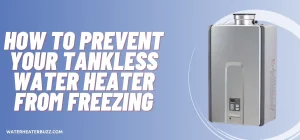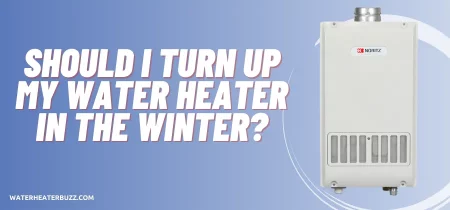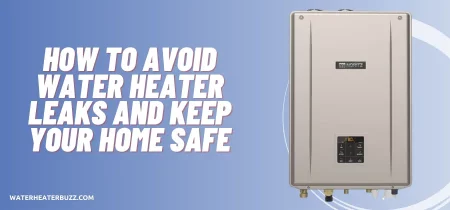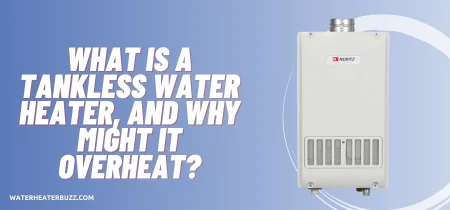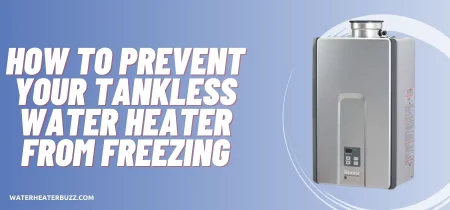An author wrote a blog article with a few years of experience building their own new home. This article goes over their steps to ensure that their tankless water heater is up and running in the best possible way but will be more easily maintained in the future.
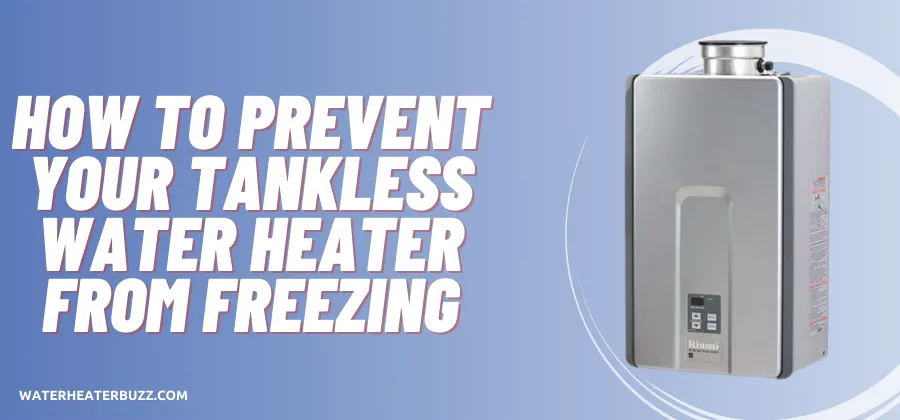
How does a tankless water heater work?
A tankless water heater is a type of water heating system that uses energy from the sun or wind to heat water. Tankless systems use a small tank on the roof of your home or business that stores hot water until you need it.
When you turn on your tankless system, the small tank fills with hot water. The system then uses energy from the sun or wind to heat this water until it reaches your desired temperature.
There are two main types of tankless systems: solar and wind. Solar systems use energy from the sun to heat water. Wind systems use energy from the wind to heat water.
Wind systems are usually better for cold climates because they use less energy than solar systems. Solar systems are usually better for warm climates because they don’t need an additional backup power source (like a wind turbine) if the weather is bad.
When choosing a tankless system, the key thing to remember is your monthly budget and your house’s heating needs.
Basic precautions for your tankless water heater
Like most people, you probably think of your tankless water heater as a convenient, energy-saving solution for your home. But like any appliance, you should take some basic precautions to protect it from freezing.
The first step is ensuring your water heater is set up correctly. Your tankless water heater should be installed in an area where the temperature stays below freezing—typically in a basement or garage. If the weather outside is cold and the temperature inside your home is warm, your water heater will likely freeze.
If your water heater does freeze, there are some things you can do to try and thaw it out: turn off the power to the unit, remove the cover, and wait until it starts defrosting on its own.
Once it’s defrosted, reattach the cover and turn on the power again. If all else fails and your water heater freezes completely, you may need to call a professional to get it unfrozen.
In addition to setting up your water heater correctly, another precaution you can take is to keep an eye on your water meter.
If there has been a significant drop in usage since your tankless water heater was installed (or if usage has been consistent but unusually low), this could indicate that your unit has frozen and needs attention.
Finally, ensure that all of the drains near your tankless water heater are clear of debris so that any liquid accumulates.
What are the dangers of freezing temperatures?
Freezing temperatures can cause serious damage to your water heater. The cold weather causes the tankless water heater to lose its ability to heat water, which can lead to freezing and, eventually, breakage of the tank.
Additionally, freezing can cause ice on the water lines and coils, creating a dangerous fire hazard. If you live in a region where temperatures regularly drop below freezing, it is important to take precautions to protect your water heater from freezing.
- Clean your water lines and coils: Cleaning the water lines and coils will prevent the build-up of ice in these areas and help ensure the safe operation of your water heater.
- Keep your tankless water heater properly insulated: Insulating it will keep it warm even when temperatures outside are below freezing.
- Check your freeze warning signs: If you notice any of the following signs that your tankless water heater may be in danger of freezing, please take action immediately: Water spilling out from under the unit; Loud banging or hissing noises coming from the unit; A green light on the thermostat that indicates frozen status; Water leaking from any area around the unit’s exterior casing (including around shutoff valves).
What are the signs that your tankless water heater is freezing?
The most common sign that your tankless water heater is freezing is a decrease in water flow.
Other signs include ice build-up on the equipment, loud noise when the heater is turned on or off, and water flowing slowly or not at all from the faucet.
If you notice any of these signs, it’s important to take action to prevent your tankless water heater from freezing.
To prevent your tankless water heater from freezing, turn it off immediately if you see any of the above signs. Make sure to disconnect the power source before doing so.
Additionally, clear any ice buildup around the equipment with a broom, dustpan, and bucket. Once everything is clean and free of ice, reconnect the power and test the water flow. Call an electrician to make necessary repairs or replace your tankless water heater if it’s still frozen.
How do I prevent my tankless water heater from freezing over?
Like most homeowners, you probably rely heavily on your tankless water heater in the winter months. Unfortunately, even the best-designed and installed tankless water heaters can be susceptible to freezing.
Fortunately, there are a few simple steps that you can take to help prevent this from happening.
One of the first things you should do is ensure that your water heater is properly insulated. This means that it should have a good layer of insulation inside and outside the unit.
Also, keep your water heater as close to the ground as possible. This will help reduce the amount of wind chill exposure that it receives.
Another important step is ensuring that your water piping is well protected from extremely cold temperatures. You should use an anti-freeze or glycol solution to fill any small cracks or gaps in your piping system.
Additionally, seal all of your plumbing joints with a high-quality waterproofing material such as silicone or copper tubing tape.
Finally, maintain your tankless water heater regularly by cleaning it out and checking for any leaks or issues as soon as they surface.
By taking these simple steps, you should be able to avoid freezing over and enjoy safe and efficient hot water throughout the winter months.
Conclusion
If your tankless water heater is freezing up during the winter, you can do a few things to prevent this from happening. First and foremost, ensure that your home has adequate insulation. Second, be sure to keep your water heater as cold as possible.
Finally, keep an eye on the water meter and ensure it is not reading unusually high levels of water usage – if so, you may need to call in a professional to fix or replace your tankless water heater. Thanks for reading!

